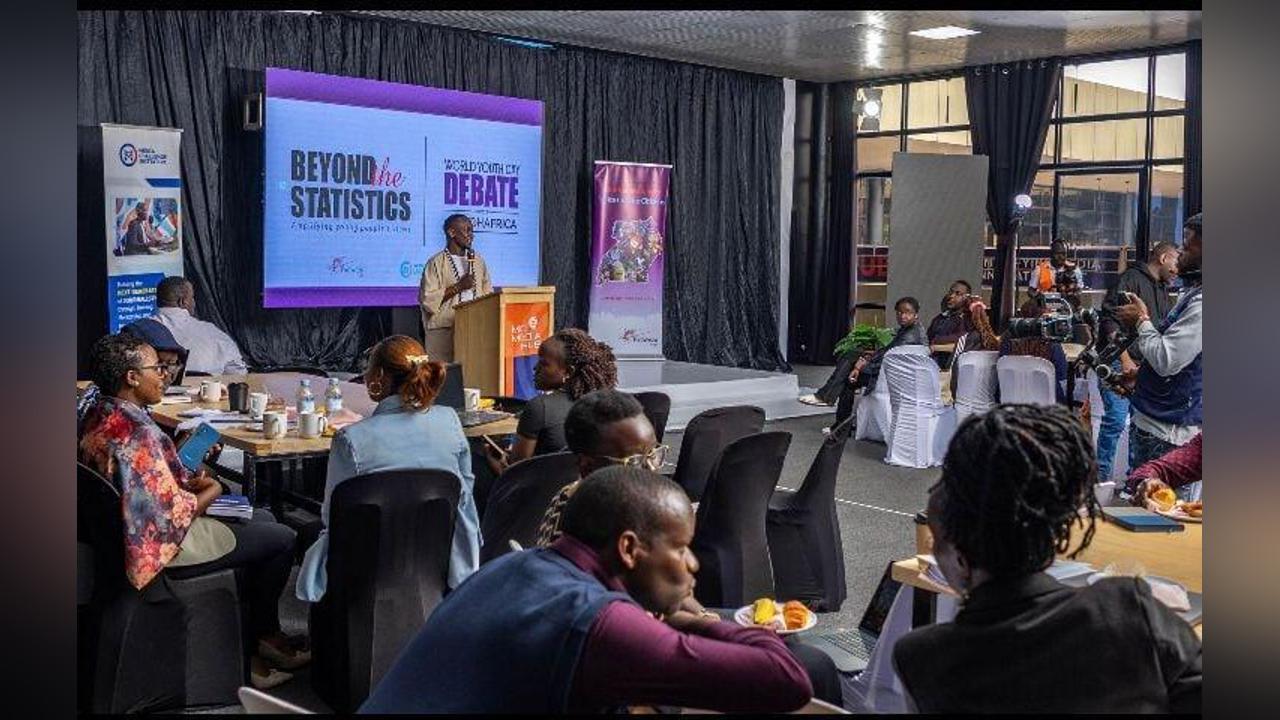Africa-Press – Uganda. Young Ugandans are increasingly frustrated with government promises, demanding that leaders match words with tangible action to address poverty, unemployment, and poor governance.
A youth debate in Kampala laid bare the urgency of these concerns and the widening gap between policy talk and lived realities.
Uganda belatedly marked International Youth Day with a spirited dialogue on August 21, 2025, at the Media Hub in Nsambya under the theme “Beyond the Statistics.”
The debate was organized by Twaweza in partnership with the Media Challenge Initiative (MCI) and the Africa Freedom of Information Centre (AFIC), drawing policymakers, civil society, and youth leaders.
Assistant Commissioner for Youth and Children’s Affairs, Mondo Kyateka, acknowledged poverty as the root of Uganda’s most pressing challenges.
“Poverty is the worst form of violence. As long as it persists, prosperity remains under threat,” Kyateka said.
He cited government programmes such as the Parish Development Model (PDM), designed to move 3.5 million households into the money economy, and the Youth Livelihood Programme (YLP), which has disbursed Shs193.7 billion to 280,000 young people since 2013.
Other initiatives include the Uganda Women Entrepreneurship Programme (UWEP), the Youth Venture Capital Fund (YVCF), and the GROW Programme.
Kyateka, however, cautioned that Uganda’s fast-rising population, compounded by unplanned pregnancies, threatens progress.
“Forty percent of pregnancies in Uganda are unplanned, with 60 percent involving teenagers. Youth must produce only the number of children they can afford to raise,” he urged.
But young participants challenged whether these interventions are yielding real results.
Marie Nanyanzi, senior programme officer at Twaweza, said findings from the Sauti za Wananchi survey showed unemployment, poor health services, and corruption as the top national concerns among youth, while hunger and drought dominate in specific regions.
“Policies must reflect these realities. A one-size-fits-all approach won’t work,” she stressed.
Other speakers emphasized innovation and entrepreneurship. Ronald Nsubuga from Mityana Municipality urged youth to exploit government’s two-year tax holiday for start-ups, while Harriet Ssuubi Tiakke, a biomedical engineering student at Makerere University, highlighted available grants for innovators.
Christine Kisakye, a journalism student at Uganda Christian University, called for stronger collaboration among youth to solve community challenges “in ways that are both impactful and profitable.”
Yet frustration was evident. Jenkins Kabuye, a Makerere graduate, pressed policymakers directly:
“You cannot expect youth to create jobs in a vacuum. The government controls a Shs 72.3 trillion budget—why not channel more of it into industries that employ young people?”
Despite differences, the debate ended with consensus that Uganda’s youthful population could be either an engine of growth or a burden if policies remain detached from realities on the ground.
While officials pointed to constitutional guarantees of youth representation—such as parliamentary seats and mandatory youth councilors—participants insisted representation must translate into meaningful influence and real opportunities.
As one youth concluded, “We don’t want more promises; we want platforms to build livelihoods.”
For More News And Analysis About Uganda Follow Africa-Press






